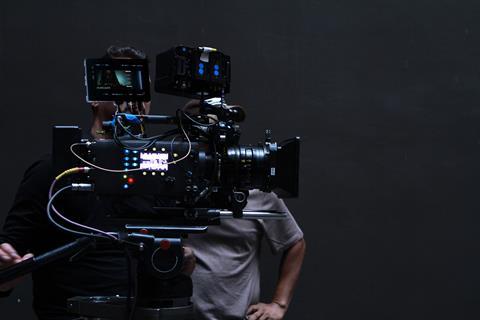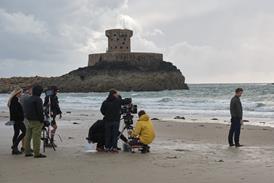The devastating impact of bullying can be magnified by the pitfalls of informal referencing, writes an anonymous director

When you hear of bullying and harassment in the TV industry you might imagine the victim as a young assistant or trainee, or expect this type of behaviour to be associated with sexism or racism. That’s not always true.
I’m an experienced drama director and I’m sharing my story with Broadcast to illustrate that bullying and harassment takes different forms, and occurs at all levels of the industry. And it can have devastating consequences on a professional and personal life. It’s taken me many years to summon the courage to tell my story, yet I’ll remain anonymous because of the nature of the industry.
I’ve encountered bullying and harassment on two occasions. A decade ago I was engaged to direct two episodes of a popular BBC drama. I expressed concerns that the first script wouldn’t translate well to the screen, but was prevented from giving feedback by one of the executive producers. So, I shot the script, successfully completing the demanding schedule.
At the executive viewing there were inevitable story problems with the episode, which was unexpectedly taken away from me and my editor.
I offered to collaborate in rectifying any issues but I was shut out. I believe the executives and writer panicked and needed someone to blame, and I was thrown under the bus.
This is when the bullying and harassment commenced. One evening, after everyone had left the production office, I was summoned by one of the execs and subjected to a slew of insults and blame.
Despite my experience and track-record, I was chastised and verbally abused. When I politely remined the exec that my script concerns had been disregarded, she became angry and continued to rebuke me. I also pointed out that there were no such problems with my second episode, which had been praised by the writer.
It didn’t occur to me at the time, but I was being used as a scapegoat for her negligence. I haven’t been invited to direct a high-end drama for the BBC since then, and I believe I was blacklisted to deflect the blame away from the execs.
A few years later I endured even worse treatment, when a BBC children’s drama turned into the most unpleasant and harmful experience of my career, from which I’m still trying to recover.
The producer’s confrontational behaviour started in prep. He would belittle me in front of colleagues during meetings, blame me for the faults of other departments, and often appeared annoyed if I wished to discuss script, production or schedule issues.
His behaviour became increasingly hostile as I moved into production, but despite being treated appallingly I simply focused on the work.
During shooting we abandoned a small pick-up shot because of an issue that had nothing to do with me. I made the producer aware of this, but when he arrived on location, he was furious, snapping at me and physically intimidating me. This appalling behaviour continued in post-production, and I was routinely chided in front of the editor.
Informal referencing can be abused
What followed made this a life-changing experience, not only for me, but for my wife and children too.
I interviewed for a popular drama on a commercial network and the meeting was one of the best I’d had. My agent told me that the producers had called immediately to say how much they liked me and we expected an offer to follow – but all fell silent.
Later my agent was told I wasn’t being offered the job. He pressed for an explanation and the series producer revealed that my previous producer had given an ‘unfavourable reference’.
Of course, they weren’t aware that I’d been bullied and harassed for three months, and seemed to accept unquestioningly the unfair appraisal of me.
Despite writing to them in an attempt to shed light on the situation, I received no reply and wasn’t given the opportunity to present my side of the story. I believe the bullying producer was purposely damaging my reputation to third parties and trying to ruin my career.
I discussed the situation with Directors UK, and they advised that I was the victim of ‘workplace bullying and harassment’, on both counts. Only then did I fully understand the situations I’d been in.
Directors UK recommended that I take action and offered their support, but I declined. I knew that even if I won and received an apology, I’d be labelled a troublemaker. But my main reason for not proceeding with an official complaint was because my life was falling apart. The last thing my family and I needed was further distress and upheaval.
As my career nosedived, a domino effect took place with devastating consequences. Within a few months I plunged into financial difficulty and we had to put our home up for sale. Financial pressure can destroy a relationship, and my marriage broke down.
Later my wife moved away with our children, and I lost everything important to me. Within less than a year I’d gone from a busy, accomplished drama director and proud dad and family man to losing my marriage, my children, my home, my career and vocation, and my livelihood.
My confidence, self-esteem and dignity were (are) in tatters, and I’ve suffered stress, anxiety, depression and trauma.
Because of their isolated role, directors are easy targets for bullying and harassment. They can be singled out and blamed for script and editorial flaws, and the failures of others.
Much of the problem lies in the way in which freelance directors are reference checked, by casual ‘word of mouth’ rather than through a formalised system. This system is wide open for abuse and people can have their reputations tarnished and careers unfairly destroyed.
Although all this happened several years ago, I’m still living with the devastation it caused me and my family. I wonder how many more victims of this kind of behaviour are suffering similar consequences?
The author is a scripted director with a career spanning 20 years

































2 Readers' comments